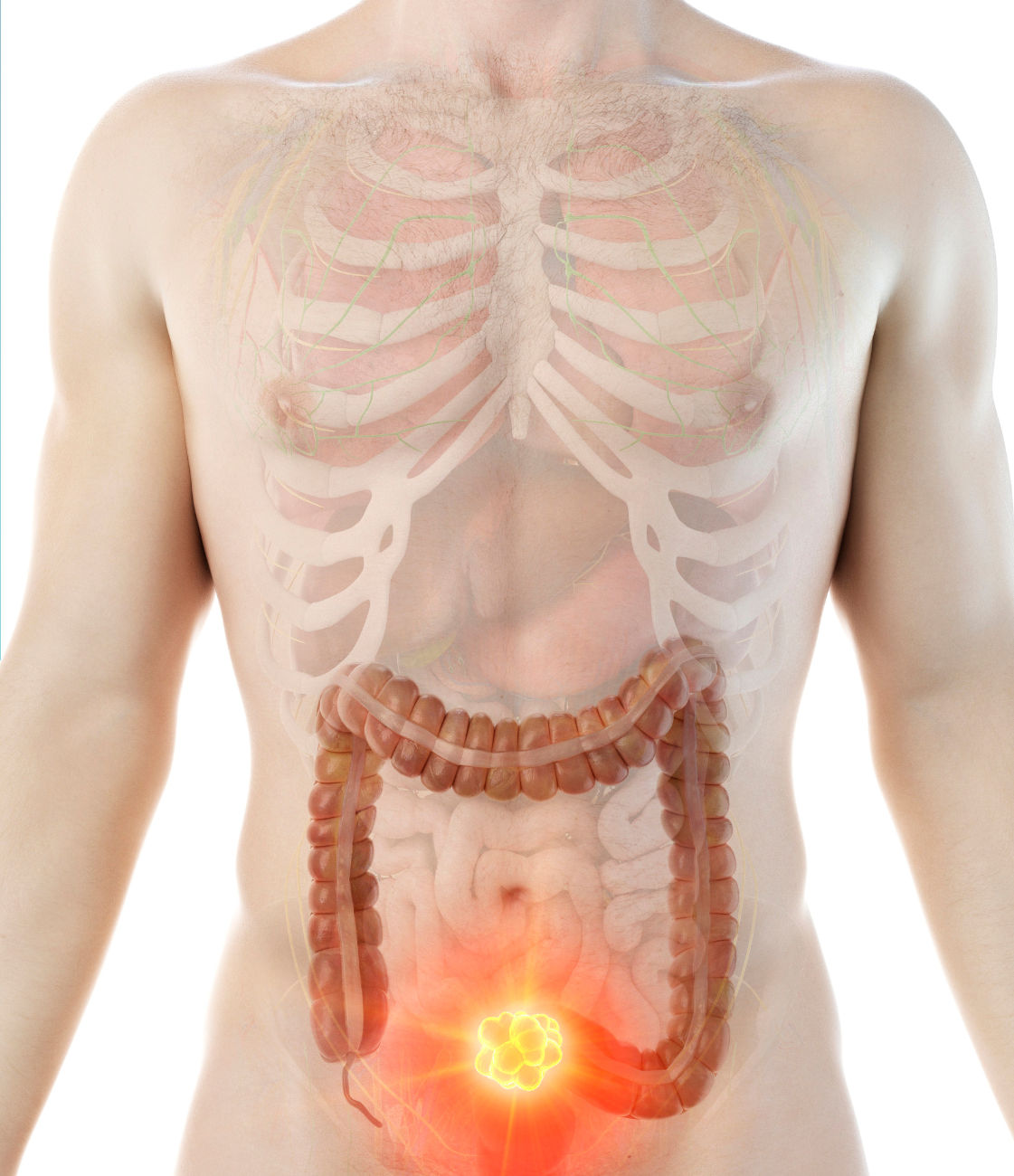- Your cart is empty
- Continue Shopping
Gastro-intestinal Cancer

Gastro-intestinal Cancer
A Complete Guide by Medlama
Gastrointestinal (GI) cancer refer to a group of cancer that affect the digestive system, including the esophagus, stomach, liver, pancreas, gallbladder, colon, rectum, and anus. These cancer are among the leading causes of cancer-related deaths globally — often due to late diagnosis and non-specific symptoms that go unnoticed in the early stages.At Medlama, we are committed to changing this reality by improving awareness, enabling early detection, and ensuring access to authentic, WHO-GMP certified medications tailored for different types and stages of GI cancer.
Most GI cancer can be better managed — or even prevented — with timely screenings, genetic testing (where applicable), and healthy lifestyle choices. Yet millions remain undiagnosed until the disease progresses. That’s why we focus not just on treatment, but on education and proactive care.At Medlama, we don’t just dispense medicines — we build a circle of trust and support. From helping patients understand their diagnosis to connecting them with leading gastroenterologists, oncologists, and diagnostic centers, we aim to ensure that every individual receives personalized guidance, cost-effective treatment, and emotional resilience throughout their journey.
What Increases the Chances of Gastrointestinal Cancer?
Understanding the risk factors associated with GI cancer is essential for prevention, early diagnosis, and lifestyle improvement. Although having one or more risk factors doesn’t guarantee cancer development, it increases susceptibility. Awareness allows for regular checkups, improved nutrition, and prompt medical attention.
01. Diet and Nutrition
A diet high in red meat, processed meats, and low in fiber, fruits, and vegetables is strongly linked to a higher risk of colorectal and stomach cancer. Nitrites, additives, and preservatives in processed foods may damage the lining of the GI tract and promote cancerous changes.
02. Obesity and Sedentary Lifestyle
Being overweight or obese increases the risk of several GI cancer — including colon, pancreatic, liver, and esophageal cancers. Excess fat triggers chronic inflammation and hormonal imbalances, which can lead to abnormal cell growth. Lack of physical activity further compounds these risks.
03. Tobacco and Alcohol Use
Smoking is a major risk factor for esophageal, stomach, liver, and pancreatic cancer, while excessive alcohol intake is strongly linked to liver and colorectal cancer. These substances damage the digestive tract lining and impair normal cell regeneration.
04. Chronic Infections
Chronic infections play a significant role in increasing the risk of various gastrointestinal (GI) cancer. For instance, Helicobacter pylori (H. pylori) infection is a major cause of stomach cancer, while Hepatitis B and Hepatitis C viruses are strongly linked to liver cancer. Additionally, Epstein-Barr virus (EBV) has been associated with certain types of GI lymphomas, and human papillomavirus (HPV) is known to contribute to anal and some rectal cancer. Detecting and treating these infections early can greatly reduce the chances of cancer development, highlighting the importance of regular medical checkups and appropriate antiviral or antibiotic therapies.
05. Family History and Genetics
A family history of colorectal, gastric, or pancreatic cancer increases personal risk, especially with inherited syndromes like Lynch syndrome or familial adenomatous polyposis (FAP). Genetic counseling and early screenings are essential for those with hereditary risk.
06. Chronic GI Conditions
Conditions like inflammatory bowel disease (IBD), ulcerative colitis, Crohn’s disease, Barrett’s esophagus, and cirrhosis of the liver can all increase the likelihood of GI cancer due to chronic inflammation and cellular damage over time.




Early Awareness
What is Gastrointestinal (GI) Cancer?
Gastrointestinal (GI) cancer begins in the organs of the digestive system, which includes the esophagus, stomach, liver, pancreas, gallbladder, small intestine, colon, and rectum. These cancer occur when abnormal cells in the lining of the GI tract grow uncontrollably, forming tumors that can invade surrounding tissues or spread to other parts of the body.
Many GI cancers develop silently in the early stages, which makes timely screening, awareness of risk factors, and early diagnosis essential for effective treatment and improved outcomes.
- Colorectal Adenocarcinoma
- Gastric (Stomach) Adenocarcinoma
- Hepatocellular Carcinoma (Liver Cancer)
- Pancreatic Adenocarcinoma
Each GI cancer type has distinct characteristics and treatment needs. Awareness, regular checkups, and early intervention can make a life-saving difference.

Hidden Warnings
Signs and Symptoms of Gastrointestinal (GI) Cancer
Yes. Changes in bowel movements, including persistent constipation, diarrhea, or alternating between both, may signal GI cancers, especially colorectal cancer. Narrow stools or a feeling of incomplete evacuation can also be warning signs.
Pay attention to frequent or unexplained abdominal pain, cramping, or discomfort, particularly if it is localized and persistent. Pain after eating, or in the upper abdomen (common in stomach, liver, or pancreatic cancer), should not be ignored.
Yes. Unexplained weight loss, loss of appetite, nausea, vomiting, and fatigue are common symptoms across many GI cancers. These occur as the cancer disrupts digestion, nutrient absorption, or causes systemic inflammation.
Not necessarily. These symptoms can result from common GI issues like ulcers, infections, or irritable bowel syndrome. However, if symptoms are persistent, worsening, or unusual for you, it’s essential to consult a healthcare provider for timely evaluation and possible screening.
Gastrointestinal Cancer Medicines Available at Medlama
At Medlama, we are committed to helping patients gain timely access to the most effective and trusted gastrointestinal (GI) cancer treatments. We provide a curated range of FDA-approved, WHO-GMP certified, and globally recommended medications — sourced only from verified manufacturers. Whether dealing with colon, stomach, liver, pancreatic, or esophageal cancer, our medication offerings are aligned with individual treatment plans and disease stages.
Our selection includes chemotherapy agents, targeted therapies, and immunotherapies designed to improve survival rates and enhance quality of life.
Capecitabine (Xeloda)
An oral chemotherapy drug often used for colorectal and stomach cancer, Capecitabine converts into 5-FU in the body and disrupts DNA synthesis in cancer cells. It is preferred for outpatient treatment due to its oral form.
5-Fluorouracil (5-FU)
A commonly used chemotherapy drug in GI cancer, especially colorectal and gastric cancer. Often administered intravenously, it blocks DNA production and slows or stops cancer cell growth.
Oxaliplatin
Used in combination regimens like FOLFOX for colorectal cancer, Oxaliplatin is a platinum-based drug that interferes with DNA replication in cancer cells. It is effective in both adjuvant and metastatic settings.
Irinotecan
A topoisomerase I inhibitor used primarily in advanced colorectal cancer, Irinotecan prevents DNA from unwinding, causing cancer cell death. Often part of the FOLFIRI regimen.
Trastuzumab (Herceptin)
A targeted monoclonal antibody used in HER2-positive gastric and gastroesophageal cancer. It binds to HER2 receptors on cancer cells and inhibits their growth.
Ramucirumab (Cyramza)
An anti-angiogenic drug used for advanced stomach and colorectal cancer. It works by blocking the VEGF receptor and cutting off blood supply to tumors. Used alone or in combination with chemotherapy.
At Medlama, we don’t just dispense medicines — we provide trusted support through every stage of the cancer journey. From choosing the right medication to providing usage guidance and ensuring safe, temperature-controlled delivery, we are with you at every step — delivering care you can count on.
Welcome to Medlama — a holistic healing initiative under Narang Biotec — designed to support your emotional and mental wellbeing alongside medical treatment.
At Medlama, we believe that healing is not just physical — it’s also emotional, spiritual, and mental. Our aim is simple: to create a safe, empowering space where we can come together to beat cancer with strength, positivity, and support — beyond medicine.
Useful Links
Address
- 3966, 2nd Floor, Roshanara Rd, Arya Pura, Sabzi Mandi Old, New Delhi, Delhi 110007
- +91-9205022032
- contact@medlama.com
